Samsung Galaxy S9 and S9 + have become smarter and faster than their predecessors, and their cameras have also improved. However, this still does not mean that these smartphones are a good choice for you. Starting from March 16, the devices will go on sale (early pre-order distribution began on March 9), and we have collected in this material the main advantages and disadvantages of flagships, so that it is easier for you to decide
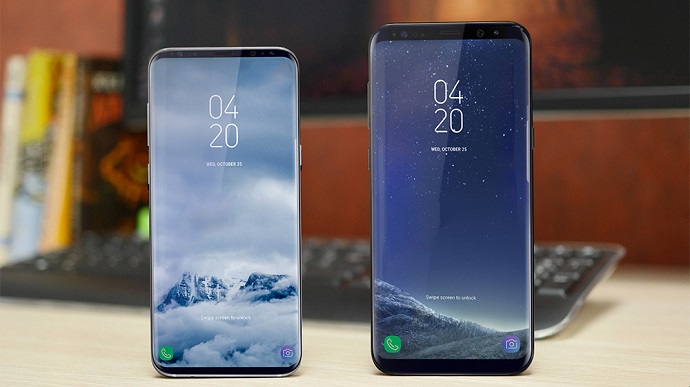
Immediately, we note that self-moji (aka AR Emoji) are not mentioned in this material, since this function, as they say, is not for everybody. Samsung has already commented that their development is not associated with Animoji, and we tend to believe this. But whether you like them or not is a matter of taste.
- PROS: The first smartphone with variable aperture
- PROS: Improved slow-mo
- PROS: Fastest Android – smartphone
- PROS: Augmented reality makes everything better
- PROS: Thinner bezels, brighter screen
- PROS: Stereo speakers
- PROS: Stunningly fast LTE
- PROS: Excellent price-performance ratio
- PROS: 3.5 jack in place
- PROS: Convenient location of the scanner
- CONS: Too similar to the Galaxy S8
- CONS: Trends 2018 didn't make it to S9
- CON: Intel ligent Scan is not secure enough
- CONS: Samsung delays releasing updates
- CONS: Samsung Experience is inferior to stock Android
PROS: The first smartphone with variable aperture
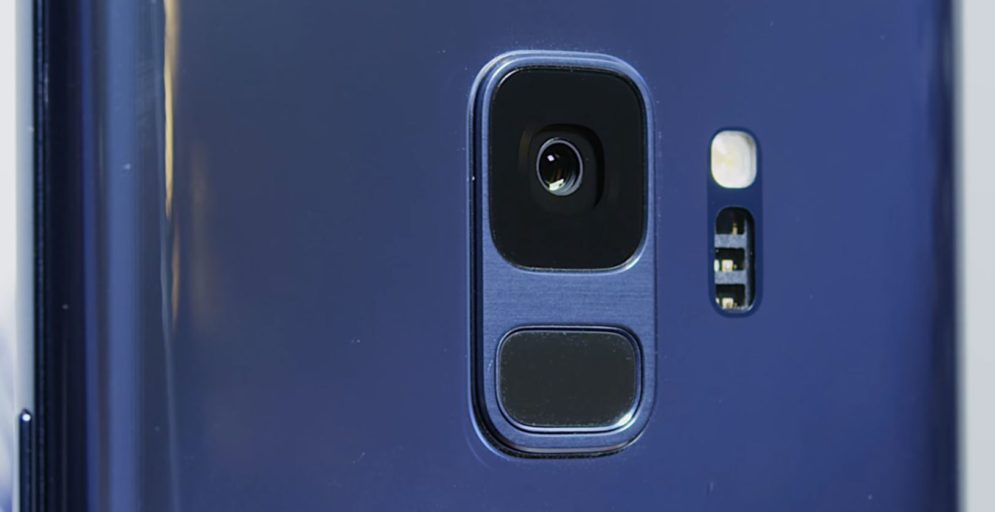
At the presentation of the flagships, a lot of attention was paid to their cameras – and the very feature here, undoubtedly, was the variable aperture – Samsung called this technology Dual Aperture. This allows the aperture to open to f / 1.5 or f / 2.4, depending on lighting conditions. Without going into details, let's just say that f / 1.5 captures 28% more light than f / 2.4. As a result, you can shoot in dim lighting (for example, in a restaurant) without using a flash and still get fairly bright pictures. In addition, the camera has dedicated memory for noise reduction, which also works to improve photos taken in low light.
PROS: Improved slow-mo
Yes, yes, again about the camera. Everything looks better in slow mo, and the new Galaxy S9 can shoot 1080p video at 960 fps for stunning results. Any, even the simplest action becomes super-dramatic and cinematic with this kind of shooting, and it's cool. Another plus – the Galaxy S9 is able to start shooting not on the usual timer, but when the motion sensor is triggered.
PROS: Fastest Android – smartphone
Thanks to the Qualcomm Snapdragon 845 processor, the new Galaxy has become the fastest smartphone on Android. In particular, in the Geekbench benchmark, which takes into account the overall performance of mobile devices, the Galaxy S9 + scored 8.295 points. By comparison, the Google Pixel2 XL scored 6,282, while Samsung's other flagship, the Galaxy Note, had 8,6,564 points.
The S9 + also performs well in video processing tests. In particular, the smartphone was used to transcode 4K video. It took the device 32 seconds to process a 2-minute video, which is 30 seconds faster than the Pixel 2 XL and 1.5 minutes (!) Faster than the Galaxy S8. At the same time, Apple the new product managed to get around with difficulty: it took iPhone X 42 seconds to complete the same task. And that's considering that the Cupertino-based company has yet to showcase its 2018 flagship.
PROS: Augmented reality makes everything better
Bixby Vision is smarter than ever, and it gives the user a number of new possibilities. For example, now you can point the camera at a sign in a foreign language, and you will see its translation (54 languages are available). There is also a virtual make-up function: it allows you to see how lipstick of a certain shade or other cosmetic product will look on your (and not only) face. You can use it from both the front and the main camera. Unfortunately, so far the function of recognizing dishes and ingredients works every other time and definitely needs to be improved – but it was announced as experimental.
PROS: Thinner bezels, brighter screen
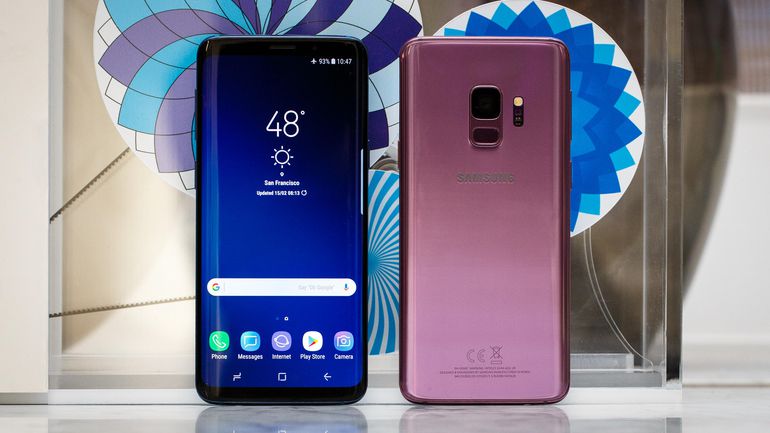
The Infinity Display on the Galaxy S8 already looked almost bezel-less, but in the Galaxy S9, the Koreans managed to reduce the bezels even further. This makes the smartphone a little more convenient to use with one hand, but let's be honest: the difference is not so noticeable, and people with small hands should still wait for iPhone SE 2 or pay attention to the Sony XZ2 Compact. In general, finding a great model in 2018 is quite realistic – but let's face it, this is not the case with the Galaxy S9. It is also worth noting that the Super AMOLED display is even brighter than it was on the Galaxy S8, and there were no problems with saturation in the previous generation.
PROS: Stereo speakers
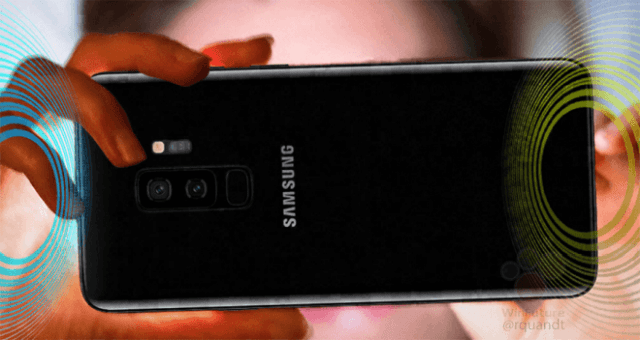
If you thought the sound in the Galaxy S8 and S8 + was too quiet, then you are definitely not alone. Fortunately, Samsung has listened to users and added the much-anticipated stereo speakers to the Galaxy S9 – co-developed with AKG. They are about 1.4 times louder than the speaker in the S8 and support Dolby Atmos – this technology creates surround sound (of course, if the original audio file allows it).
PROS: Stunningly fast LTE
When testing, it turned out that LTE in the Galaxy S9 is almost twice as fast as in iPhone X. The app from Speedtest.net was used for the measurement, both devices used SIM cards with the same settings from the same operator (T-Mobile). In particular, the Galaxy S9 had an average download speed of 71.6 Mbps and downloads of 10.1 Mbps. For comparison, for iPhone X these figures were 48.8 Mbps and 7.7 Mbps, respectively. The Galaxy also performed better at downloading short videos and posting photos online.
PROS: Excellent price-performance ratio
The Galaxy S9 and S9 + are significantly cheaper iPhone X – and this is considering that the latter was released in November last year and actually belongs to the previous generation of flagships. In particular, the Galaxy S9 in Russia costs 59,990 rubles, for the Galaxy S9 + you will have to pay 69,990 rubles, and iPhone X in the minimum modification still costs from 79,990 rubles. up to 91,990 rubles. for versions with 64 and 256 GB of storage, respectively.
PROS: 3.5 jack in place
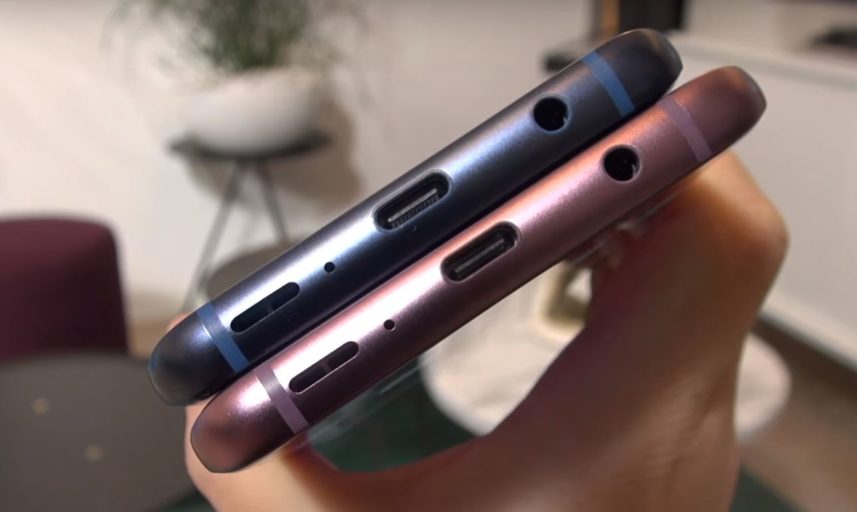
Although in 2018 there are fewer and fewer manufacturers who continue to produce smartphones with a headphone jack (Sony and Nokia have already become the enemy), lovers of wired headphones can breathe freely: in new “galaxies” the coveted jack is in place. It's hard to say whether the Koreans will abandon it in the S10 (or whatever they call it), but in the coming year Samsung fans will not have to switch to Bluetooth or purchase adapters.
PROS: Convenient location of the scanner
We have talked more than once in our materials about how inconvenient the fingerprint scanner is in the Galaxy S8. Fortunately, in the ninth generation, Samsung heard users and worked on bugs. The scanner sensor has moved under the main camera, and now you will have to erase fingerprints from the lens less often.
CONS: Too similar to the Galaxy S8
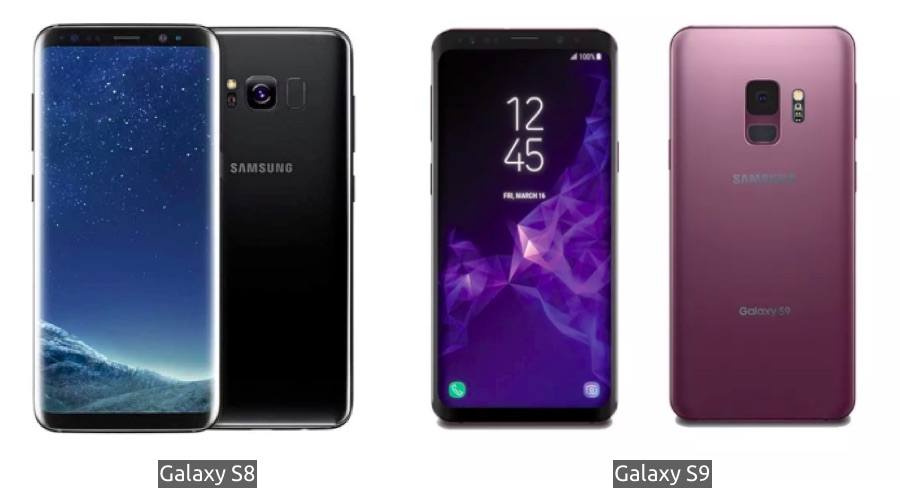
While the camera is undoubtedly an innovative and important improvement in the new flagships, and the speakers are better and louder, you might not want to pay for it if you already have last year's flagship on hand. Most of the S9's features are more flashy gimmicks than real important and necessary improvements.
Comparing the Galaxy S8 to the S9 without paying attention to the camera makes it hard to spot the differences. Both devices have a glass back and aluminum on the sides, and the display size and resolution are also identical. Yes, the Galaxy S9 is undeniably a great smartphone, but it's possible that you might want to take a closer look at the Galaxy S8.
CONS: Trends 2018 didn't make it to S9
As the first major flagship of 2018, the Galaxy S9 has one major flaw: it doesn't respond to this year's trends. Most likely, over the course of the year, we will see a number of innovations that will become the norm for every flagship. We even have an idea about some of them. Specifically, Qualcomm announced last year when Snapdragon-powered smartphones will receive support for in-display fingerprint scanners. Unfortunately, the Galaxy S9 came out a little earlier and did not have time to pick up this technology, which will surely dominate the top smartphones of the year. Samsung is also continuing to hint at a foldable smartphone (presumably called the Galaxy X). If this does happen, chances are the Galaxy S9 will quickly be forgotten. In other words, history may repeat itself with iPhone 8 and iPhone X.
CON: Intel ligent Scan is not secure enough

Galaxy S9 and S9 + can be unlocked using the new Intel ligent Scan system, which combines face and iris scanning. It works quite accurately, but you need to keep your smartphone at eye level, which is not always convenient. Face ID, by comparison, works from almost any angle. In addition, Intel ligent Scan is not yet secure enough to confirm purchases with Samsung Pay, so you can't opt out of using the fingerprint scanner anyway.
CONS: Samsung delays releasing updates
It's been almost a year since the release of Android 8 Oreo, and the Galaxy S8 only started updating to this version last month. Galaxy users have to wait too long to access the new features that Google is adding to their firmware. Yes, security updates arrive quite often, but the gap between the release of the new version Android on the Pixel and the top Galaxy is too big. Chances are good that the Galaxy S9 will suffer the same fate and Android P it will receive only next year, although its announcement should take place in May.
CONS: Samsung Experience is inferior to stock Android
And again about the firmware. For those who haven't followed the news about the Korean giant for a long time: Samsung Experience is a new shell from the manufacturer, replacing the outdated and overloaded TouchWiz. Yes, this shell is fast enough, it looks attractive and offers features not available in other firmwares, including the “clean” one Android. But Samsung Experience lacks the lightning-fast speed that stock Android does. In addition, some functions may seem redundant to users and overload the platform.
